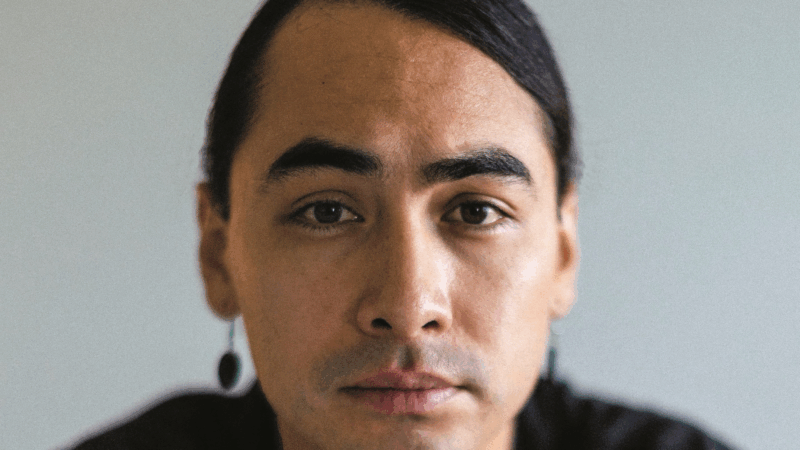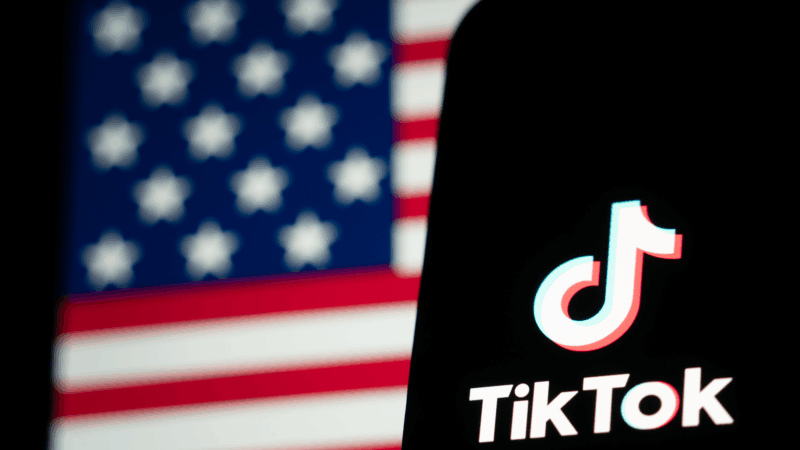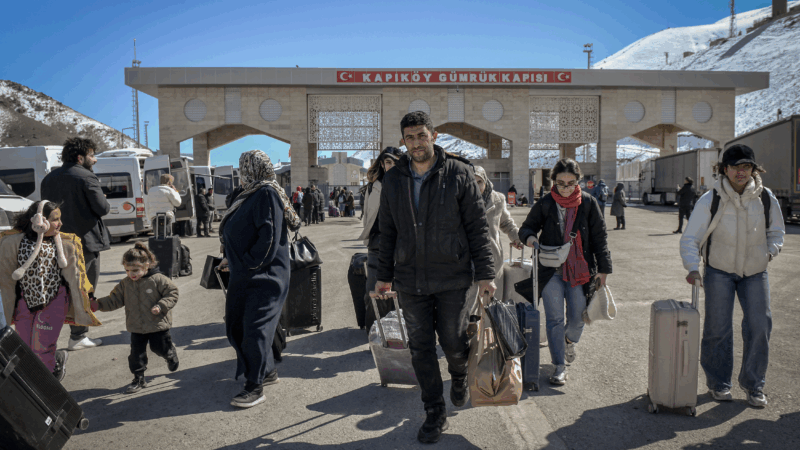Julian Brave NoiseCat’s survival story is both personal and ancestral
Minutes after being born, Ed Archie NoiseCat was thrown away. A janitor at St. Joseph’s Mission School for Indigenous Canadians discovered the infant as he was preparing to burn the garbage. Ed’s son, writer and filmmaker Julian Brave NoiseCat, was an adult before he learned the full story of his father’s birth.
“My family never talked about it, and my father didn’t really know the specifics around what happened when he was born and how he was found,” Julian says. “When I was a teenager, I had heard what I assumed at the time were ghost stories about babies being born at St. Joseph’s mission being put into the trash incinerator there.”
St. Joseph’s Mission School was one of more than 100 missionary boarding schools that Indigenous children were required to attend, as mandated by the Canadian government in 1894. Julian’s father, a member of the Secwépemc tribe, eventually left the Canim Lake Indian Reserve in British Columbia, and moved to the U.S. where he married Julian’s mother, who is white.
Though his parents divorced when he was 6, Julian’s mother was determined to find ways for her son to connect with Native culture. Julian spent a lot of time on his paternal family’s reservation and became a champion powwow dancer and an activist. He co-directed the 2024 Oscar-nominated documentary Sugarcane, which told the story of the mission schools.
Julian’s new book, We Survived the Night, is part memoir, part indigenous history and part “coyote stories.” The book’s title is a rough translation of “tscwinúcw-k,” a traditional morning greeting in his Native language.

“I’ve often wondered what it meant for my people to use that word at different moments in our history,” he says. “What did it mean in the winter of 1863, when two thirds of our nation died of smallpox? What did it mean in the days after the children were all taken away in cattle trucks to Indian residential schools like St. Joseph’s Mission?”
For Julian, telling his story in the memoir and film is part of a broader mission: “As a Native person who’s living in the wake of a cultural genocide that nearly wiped our way of life … off the face of this Earth, how you choose to live your life becomes a somewhat existential question,” he says. “To live a life in an Indigenous way is a kind of profound thing, and it has been really beautiful to get to make art and tell stories from that position.”
Interview highlights
On confronting his dad about abandonment in Sugarcane

I moved in with my dad actually and lived with him for two years while we worked on Sugarcane and while I wrote my first book, We Survived the Night. And so, you know, after not living together for 22 years — I mean, he left when I was about 6 years old — suddenly we were living across the hallway from each other. And he’d spend his days out in the carving shed in the garage, and I’d be working on my book and working on Sugarcane. And then at night we’d hang out and we got to know each other a lot better. I’d turn on my recorder and he would tell me stories from his life that I’d never heard before. He learned a little bit more about mine. And we really did become like best friends. And so I think that that relationship … was really rebuilt because I did make the choice to move back in with him to create some opportunity for reconciliation. Also made it possible for us to have real and hard conversations like the one that you see in the film.
On the importance of connecting with ancestry, especially through powwow dancing

I grew up with a real sense of disconnection and loss. … I devoured Sherman Alexie books when I was a kid. I watched every single cassette tape of this documentary series called 500 Nations until they basically fell off their reels. … I think it was something that I felt soul-driven to do from a very young age. And dancing was probably the biggest part of that.
Before I started doing journalism or documentary, long before I picked up a documentary, I traveled Indian country as a powwow dancer all the way from the Enoch Cree Nation outside of Edmonton, Alberta, to the Pala Band of Mission Indians in California, and many different reservations in between to go to their annual powwows where I’d compete. And one year, I actually won a horse at a powwow. So it’s been a huge part of my life, and I think it’s part of what gives me meaning. It gives me connection to family and love. And also, I think that all Native people probably feel this in some sense, but we have a responsibility to bring back the cultures and traditions and languages, and in my case, the stories, that were nearly wiped off the face of the Earth by colonization and by schools like St. Joseph’s Mission.
On dedicating his book to his white mom
When you see my mother and my father and I in a family photo, it looks like my dad’s genes really kicked mom’s genes’ butt. And I have about as Indian a name as you can imagine, Julian Brave NoiseCat. And my dad on top of that was a noted Native artist. And if you said “NoiseCat” in certain periods of time when I was a kid in certain rooms full of Indian people, they’d be like, “Oh, like the artist?” His absence was something that kind of followed me everywhere I went.
And she had this instinct, that was brilliant for a mom and bang on, that I needed to be connected to my family, his family, my culture and my identity. And so she did things like put me in a car and drive me over 24 hours, which is how long it takes to get from Oakland, Calif., to Canim Lake, British Columbia. She’d take me down to the Intertribal Friendship House, one of the oldest urban Indian community centers in Oakland, Calif. And she also learned how to bead so that I could dance powwow and have my own regalia. She did so much and she also remains my first reader and editor of my writing. So it only felt appropriate to dedicate We Survived the Night to her.
On the bonds of kinship
I think that part of what is really beautiful about being Native, about being Indigenous, is that being related really means something to us. We are very involved in each other’s lives. We take care of each other, we feed each other. We look out for one another. … I think that ultimately that is not just something that’s important to Native people. I actually think that that’s the way that humanity lived for the vast majority of our history, and that part of our present crisis is that breaking of kinship, of the bonds that have maintained families and communities for thousands and thousands of years.
Sam Briger and Thea Chaloner produced and edited this interview for broadcast. Bridget Bentz, Molly Seavy-Nesper and Beth Novey adapted it for the web.
A Jan. 6 rioter pardoned by Trump was sentenced to life in prison for child sex abuse
Since receiving presidential pardons, dozens of former Capitol rioters have gotten into more legal trouble. In Florida, Andrew Paul Johnson was sentenced to life in prison for child sex abuse.
President Trump, Pam Bondi sued over sale of TikTok assets
The case, filed in a federal court in Washington, D.C., accuses the Trump administration of ignoring legislation designed to stop the spread of Chinese propaganda — and instead helping to broker a partial sale to businessmen close to Trump.
A rift between Spain and Trump widens over Spanish opposition to the Iran war
The Spanish government reiterated it would not let U.S. forces use two joint military bases in Spain as the U.S.-Israeli war in Iran escalates, widening a rift with the Trump administration.
Blackpink, modern K-pop’s trailblazing group, tries to find its way home
A new mini-album finds the world's biggest girl group in a tight spot: competing with its own legacy.
If you loved ‘Sinners,’ here’s what to watch next
So you loved best picture nominee Sinners. What should you watch next? We asked our audience to share their recommendations. They suggested Near Dark, The Wailing and other vampire horror films.
U.S-Israeli strikes continue across Iran, Iranian drones hit Azerbaijan
The U.S. and Israel said they conducted new strikes inside Iran overnight, targeting ballistic missile launchers. Iran claimed it struck a U.S. oil tanker in the northern Persian Gulf.






